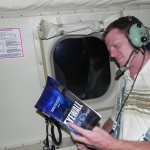Small Southern Towns: They Ain’t Always Quaint
By C. Hope Clark
 Born in Mississippi and raised in South Carolina, my roots run crazy deep into the Delta soil of one state and the Lowcountry pluff mud of the other. My grandfather ran a cotton farm, and my grandmother taught me to eat homemade biscuits with maple syrup warmed on the gas stove. When I told them as a child that picking cotton didn’t look so hard, back before a lot of farmers could afford cotton picker machines, my grandmother sewed a miniature (and floral) cotton sack and ushered me to the fields. I never questioned the ease of manual labor again, especially on a farm.
Born in Mississippi and raised in South Carolina, my roots run crazy deep into the Delta soil of one state and the Lowcountry pluff mud of the other. My grandfather ran a cotton farm, and my grandmother taught me to eat homemade biscuits with maple syrup warmed on the gas stove. When I told them as a child that picking cotton didn’t look so hard, back before a lot of farmers could afford cotton picker machines, my grandmother sewed a miniature (and floral) cotton sack and ushered me to the fields. I never questioned the ease of manual labor again, especially on a farm.
So no surprise that I wound up with an agriculture degree from Clemson and fell in love with everything rural. After a career in that realm, I turned to writing my mysteries. And guess what showed up in the stories? Crime in the country.
Newberry Sin is the fourth in the Carolina Slade Mystery Series, with the setting in a small rural community actually named Newberry.
All rural Southern communities come off as quaint upon first blush. White antebellum homes, some kept up royally while others are allowed to age, a few not so gracefully. Rockers on the porches and flags on the columns. The American flag, of course, accompanied by the state flag and/or one for the appropriate football-playing university. Azaleas, of course, plus forsythia, dogwood, camellia, and spirea dotting the yards in pastels and white. Southerners love their flowers.
And behind all that charm are stories to curl your toes. The older and more quaint the town, the more stories are whispered behind hands at luncheons and skeletons hid in closets behind the winter coats.
I won’t spill her name, but in my research on small towns, trying to find yet another to use in a novel, this homegrown native greeted me for lunch with a pound cake, apparently a tradition, and she wouldn’t allow me to pay for my own lunch, because I was a guest in HER town. Newberry . . . the center of the universe, she said. “You ought to make us a setting in one of your books.”
She elaborated the details of Revolutionary War skirmishes and the passed-down stories of ghosts, affairs, and what could only be miracles that kept some of their ancestors alive during battles.
Railroads, bars, and (cough) painted ladies helped originate the town. A room still existed in a still-standing community center that harbored any gentleman farmer’s wife for the duration of the time he did business in town, so the wife didn’t come in contact with the street walkers.
Many a husband and son fought in the War Between the States, the cemetery sprawling for acres. Graves still maintained with insignias, with current ancestors maintaining the sites with stiff, admiring pride. Several families retained bragging rights that five ancestors signed the Order of Secession, causing South Carolina to lead the way for 10 other states to follow.
Of course, ghosts abounded, from any and all of the wars, not to mention the occasional lover’s loss, leaving them roaming in search for their paramour. One jumped from the bell tower of the local college. The Bride of West End still awaits her groom for their wedding. Molly’s Rock serves as a magnet for spirits who took their own lives.
Beneath the old Ritz theater, one could supposedly still hear screams where ages ago the homeless were murdered. At the Newberry Opera House, the ghost of Penelope made a fairly frequent appearance, moving seats and closing doors.
And someone way back got in legal trouble, relocated to Australia and became a cannibal.
I couldn’t write it all down.
Newberry has it idiosyncrasies and colored past, but so does every other sweet little Southern town and crossroad. It just takes you inviting someone local to lunch and asking, “I’m looking for a setting for my book.” Honey, you’ll fill a notebook with stuff that isn’t in any history book.
C. Hope Clark’s newest release is Newberry Sin, set in an idyllic small Southern town where blackmail and sex are hush-hush until they become murder. The fourth in the Carolina Slade Mysteries. Hope speaks to conferences, libraries, and book clubs across the country, is a regular podcaster for Writer’s Digest, and adores connecting with others. She is also founder of FundsforWriters.com, an award-winning site and newsletter service for writers. She lives on the banks of Lake Murray in central South Carolina with her federal agent husband where they spin mysteries just for fun. www.chopeclark.com
Newberry Sin
Book 4 of The Carolina Slade Mystery Series
EPIC Award Winning Series
“Author C. Hope Clark brings to life . . . endearing and strong-minded characters that linger in your mind long after the last page is turned.” —New York Times bestselling author Karen White
Beneath an idyllic veneer of Southern country charm, the town of Newberry hides secrets that may have led to murder.
When a local landowner’s body, with pants down, is found near Tarleton’s Tea Table Rock—a notorious rendezvous spot, federal investigator Carolina Slade senses a chance to get back into the field again. Just as she discovers what might be a nasty pattern of fraud and blackmail, her petty boss reassigns her fledgling case to her close friend and least qualified person in their office.
Forced to coach an investigation from the sidelines, Slade struggles with the twin demons of professional jealousy and unplanned pregnancy. Something is rotten in Newberry. Her personal life is spiraling out of control. She can’t protect her co-worker. And Wayne Largo complicates everything when the feds step in after it becomes clear that Slade is right.
One wrong move and Slade may lose everything. Yet it’s practically out of her hands . . . unless she finds a way to take this case back without getting killed.



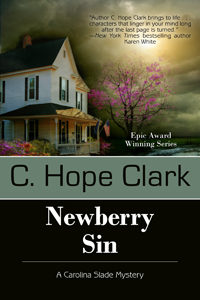

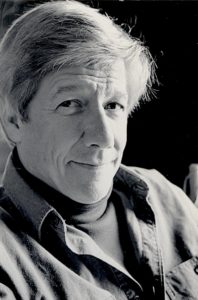
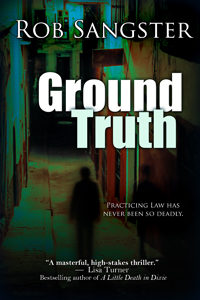


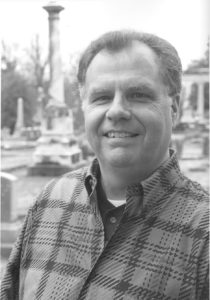 BEGINNINGS
BEGINNINGS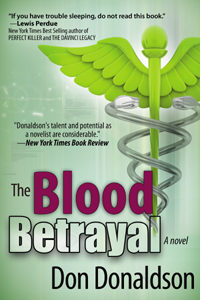



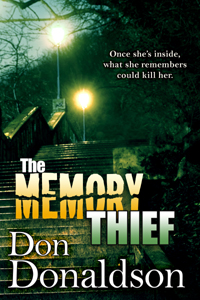

 BOOK TITLES: WHAT MAKES THEM GREAT
BOOK TITLES: WHAT MAKES THEM GREAT



